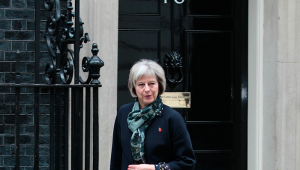‘Fairness’ means different things to different people, but ‘unfairness’ is more easily recognised, a panel discussion at the CIPFA conference heard.
Ian Bond, deputy leader of the London Borough of Redbridge, described how his council had set a budget to cut £30m over three years, following an online public consultation called You Choose.This, he said, had shown where public feeling was strongest against cuts but also where reductions would be acceptable.
Bond said the council decided at the outset to set an example with small but symbolically important savings. These included an 8% cut in councillors' special responsibility allowances, selling a spare mayoral limousine and reducing the size of the Cabinet. The councils also cut £1.5m from senior salaries.
‘When people are engaged in the discussion they are likely to accept that difficult choices have to be made,’ Bond said.
Emma Stone, policy director of the Joseph Rowntree Foundation, discussed the cost of fair provision of social care. She said there was wide agreement that the current system was unacceptable but little consensus on a replacement.
Stone added that the Dilnotreport, published earlier this week, had ‘done quite a reasonable job on building on different perceptions of fairness into something that should be sufficiently acceptable to a sufficient number of people to give us the chance of a solution to the adult social care crisis’.
Dilnot’s recommendation of increasing the savings limit for social care from £35,000 to £100,000, with a safety net for those in greatest need, should, she said, command support across the political spectrum.
Richard Hawkes, chief executive of the disability charity Scope, said disabled people would be hit hard by spending cuts because the government had failed to consider the overall effects of benefit cuts and adjustments.
Changes to Disability Living Allowance, Incapacity Benefits and the loss of the Mobility Allowance would have ‘a disproportionate impact on the lives of disabled people’, he said.
But he admonished parts of the voluntary sector for ‘being quick to complain, failing to recognise that public finances are tight’.
Hawkes urged local authorities, the voluntary sector and central government to work together and innovate to provide care services that matched users’ needs but were affordable.





















